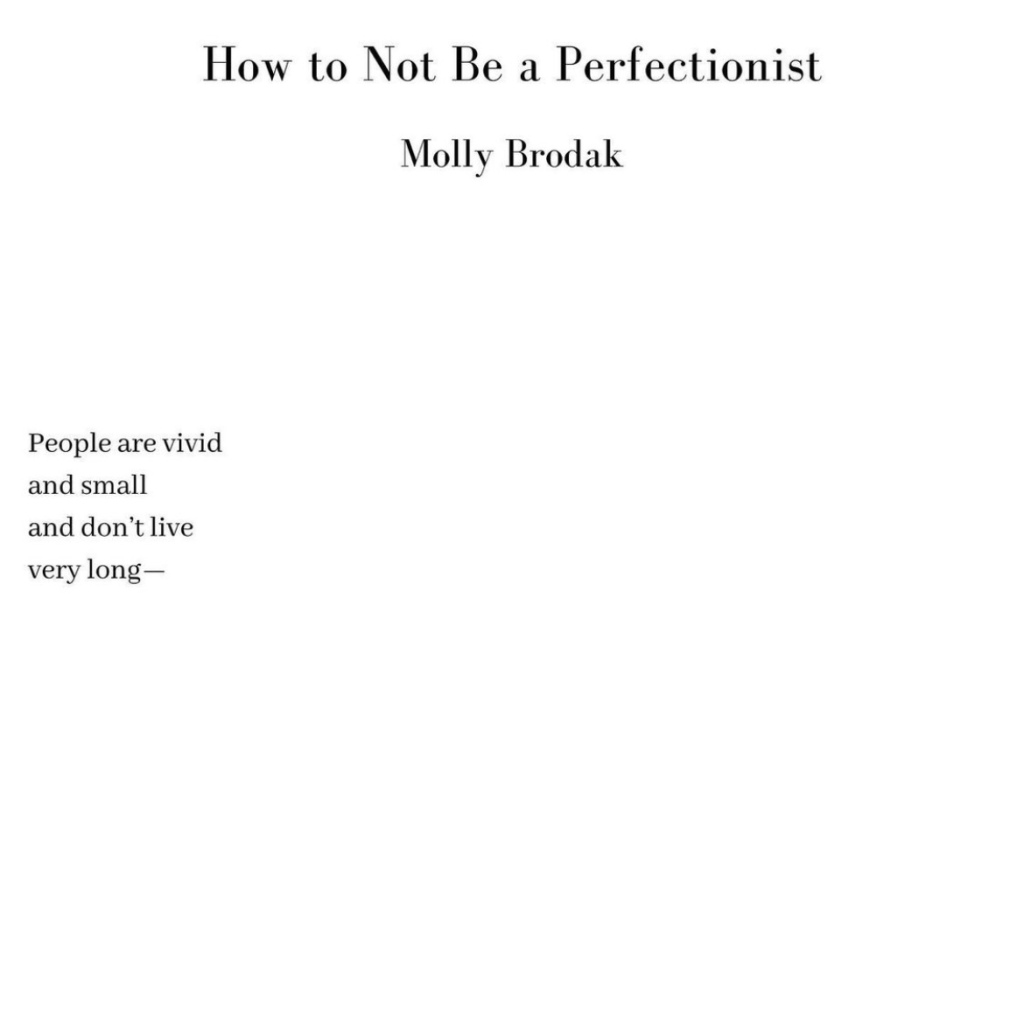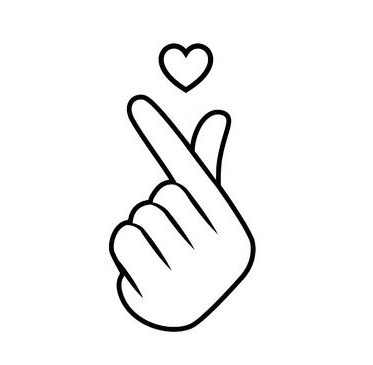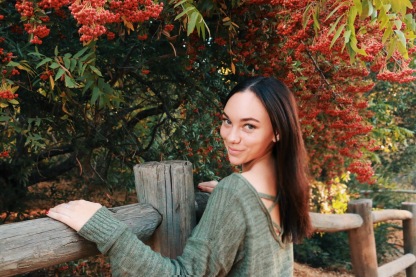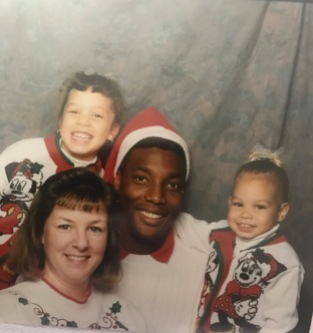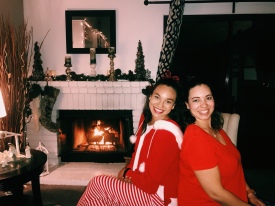CW:// eating disorders
Hey.
Long time, no write.
It’s good to see you again. I’ve missed you.
It’s funny. I sat down at my computer this afternoon and had no plans of writing or publishing anything today, but I quickly found myself navigating the searchbar, locating my blog site, and opening up a blank page. I wasn’t aware that I felt I had any thoughts to share today (especially with it having been so long). But I suppose I came here for a reason, and I now know what I’m meant to write and share.
I’ve begun writing this post a few times now, desperately seeking some alternate topic, higher theme, or interesting story I could tell here today, mainly to distract from what it is I’m feeling. But, as we’re aware of, feelings *know.* I can’t seem to shake what my mind is enduring and fixating on lately, and I know that my own inability to allow escapism to suffice is indicative of a greater need to share openly, to write with transparency, and to live honestly.
I think we owe that to one another.
I imagined that my first blog post of 2021 would be a reflection of my first year of graduate school— an honest depiction of my experience, a vulnerable expression of the wide-ranging feelings I’ve yet to feel dissipate, and a reflection on the many challenges, growing pains, and ultimate triumphs and successes I bore witness to throughout my first year in a PhD program. I still long to write this post, and I know that I will. But right now, I’m not yet ready.
Instead, I’m ready to talk about another hard thing: eating disorder recovery.
It’s always difficult for me to know where to begin. In my experience, I’ve found that things move so quickly in recovery (or in relapse) that it’s nearly impossible to keep track of what’s going right, what’s going wrong, or even what feels the hardest in the mundane everydayness of it all. Even now, as I sit here writing, I’m wondering if I have my thoughts ordered well enough to compose a post most reflective of how I find myself doing these days.
It’s no secret that recovery is hard. There’s not a single aspect of healing from an eating disorder that is easy, nor is it a journey that I feel ever truly ends. There’s an undeniable discomfort in the re-feeding process (for restrictive EDs), and weight restoration is something I’ve found to be particularly difficult in my own recovery, both physically and mentally. Nobody prepares you for tackling the harrowing kind of fear, guilt, and shame that accompanies the consistent and active watch of your changing body, perhaps into the body (or level of health) you vowed to abandon forever. Beyond the weight, though, challenges I never anticipated have arisen in my pathway towards recovery throughout the years, many of which I never really talk about.
Maybe it’s because I’m afraid that vocalizing them will make them real.
Maybe it’s because I think I can overcome my own obstacles without any enlistment of help or support.
Maybe it’s because I don’t like the possibility that I could be failing at my own recovery— a signal of that loss of *control* I so deeply despise.
Or maybe it’s because there’s a part of me that still remains; one that fails to care for my well-being and chases my own destruction.
But now, a little over three years into my recovery journey, I am beginning to understand the importance of radical honesty. The kind of vulnerability and openness that holds a key to unlocking the same in others, thereby making the world a safer, more honest, and true place. The courageous kind of acknowledgment of mistakes, hardships, and shortcomings, no matter how difficult, for it is only then that we can begin to imagine a culture in which leaning on one another and carrying each other through the darkest of times is the beating heart of all that we do.
That is the world I yearn for, so that is the world I must work to create.
Still, honesty is hard. Even after all these years.
When I first left treatment, I didn’t feel ready. I knew that I wasn’t, but in light of the circle of honest vulnerability I’m advocating for here, I didn’t care. I entered a partial hospitalization program involuntarily, and though I quickly accepted my lack of a choice in the matter, I promised myself that once I got through the summer months of program that I could abandon this whole “recovery” thing forever. In other words, the consolation prize I conjured up for myself was, in fact, the rapid and graceful return of the eating disorder that had almost taken my life and had landed me in the state I was in.
Promising myself the safe return of my eating disorder is what fueled me throughout my stay in treatment. I arrived everyday at 8am, cried my way through three meals and two snacks, and quietly sat my way through individual and group therapy sessions, only subconsciously focused on the gift of my eventual exit. I remember days where I maintained attempts to be present, to work my way through the underlying pains that helped cultivate my eating disorder voice, and to attach a greater value to my recovery as opposed to my disorder, but these days were few and far between and the attempts futile. Sure, I made it through the days okay with no observable breakdowns. But, the moment I returned to my car, there I was; on the road again, fighting the urge to rid my body of the nourishment I had just given it, sobbing my way through motivational podcasts, wondering if I would ever be able to have a life again.
The truth is that I had no intentions of “getting better,” that I possessed no will to recover, and that everyday, I still faced overwhelming, all-encompassing desires to pursue my own invisibility and disappearance. I so badly wanted to escape the pains and perceivable chaos of my life that I convinced myself it would be easier to give up and give into the deadly symptoms of my condition, for at least that would gift me with a sense of control and esteem.
I was experiencing deep pain, and I was chasing it. And, I was good at it.
The summer went by, I gained the weight I needed to in order to leave treatment and return to school in the fall, and, just like I had promised, I abandoned my own recovery immediately upon my return. The relief I felt no longer having to weigh out my portions of food in front of a dietician, no longer having to check in with a therapist about the heaviness of the mental disorder, or sitting in rooms desperately willing the clock to move at a faster speed was unlike any I had ever felt before.
I went back to San Diego, jaded but unhealed, only with the intention to revert to my old ways. I couldn’t wait to restrict again, to get back to exercising compulsively, and to watch my body shrink once again, along with the size of my life.
The cycle continued for the remainder of my third/final year of undergrad, but I was somehow able to make it through. Amidst all of the self-sabotage, I had still managed to return to campus and graduate a year early; an accomplishment that, looking back, I largely attributed to the level of “control” I believed to have in my life and my capacity to manage everything, in spite of the relentless turmoil I felt inside my head and with my body.
My real recovery didn’t begin until the summer following graduation in May 2019. They say that there is nothing like traveling to open your eyes, widen your horizons, and remind you of the vast and beautiful intricacies of life like seeing the world, and I felt every bit of this cliché. It was in Paris that I began to feel the first waves of freedom, perhaps most apparent in the shape of croissants, lattes, and macarons. I remember the visceral feeling of the guilt falling off of my shoulders more and more everyday, and even though I couldn’t understand why, I was happy.
These waves of freedom were accompanied by the welcome arrival of new and beautiful perspectives, more reflective of such vastness, limitlessness, and wonder of the world, and less so of the binding and inescapable cage of shame I had constructed so deliberately.
I felt myself longing for more freedom. To hold onto the feeling. To chase that freedom and wonder, rather than the control and smallness that had defined my recent years.
Still, I kept waiting for that wistfulness to leave me. I wondered if it might leave me when I returned home. If I would be able to silence the voices in my head pushing only for my own destruction should they arise again. I feared that my brain might be able to conjure up a spell that trapped my “free self” back into the web of my disorder the moment I stepped off the plane.
Maybe brains can do that, but mine didn’t.
After that trip, the eating disorder voices never returned. And if they did, I was unaware, for I was so deeply cherishing the freedom and life I had just gained back. That trip marked the beginning stages of my recovery, undoubtedly defined by small steps forward and large leaps back. Still, I no longer felt the everlasting pang in my chest, urging me to do all I could to become small and insignificant. To make my body as small and weak as possible, so that my life may ultimately mirror its model. I wanted to recover, and I wanted to chase that kind of freedom that I now knew to be possible forever.
Since then, my recovery has bore witness to the highest of mountain tops and the steepest of valleys. There have been some good days, but there have been many more hard ones. The discomfort of relinquishing control in return for freedom is a transaction I am continually working on and one that never seems to subside, and I endure raging body dysmorphia more days than others. I still often cry at the end of long days, particularly when I have tried to challenge myself and indulge in a fear food, have fought the urge to over-exercise, or refrain from compensating my caloric intake with laxative abuse. And most of the time, I don’t feel happy about or proud of my attempts to leave ED behind and to recover instead.
This lack of joy and pride might seem trivial, but it is not. In fact, it has been precisely these feelings (or lack of) that have brought on practical complications in my recovery and have prompted lapses and relapses time and time again. Once proud of wearing my badge of “recovering anorexic,” I have also known myself to spend weeks, even months at a time, beckoning the re-entrance of my disorder back into my life. Though difficult to admit, restricting food, pushing my body to exercise compulsively, and sustaining my life at the size of my self-imposed cage is still one of the greater comforts I constantly seek. Anorexia has convinced me that this cage of control is safe and protective, that it serves me in deepening my will and preserving my ethic, and that it will never leave me.
COVID has not been kind to those of us in eating disorder recovery. I have found myself falling back into comfortable patterns to keep my symptoms manageable, desperately clinging onto things I know are at best inhibiting and at worst wholly sabotaging.
Alone and bombarded by media messaging about diet and exercise, I resented my nourished body. With my social routines so wildly disrupted, I struggled to know how to move and eat intuitively. I would spend hours looking at my body in the mirror— pinching, checking, weighing, obsessing— wondering if it was the glass or my brain that was warped. I am currently facing the weight of these challenges still.
It remains an active choice for me to make everyday whether or not I want to value my recovery. Right now, things are hard. Truthfully, I’ve doubted my ability to continue on and to face the relentless, seemingly insurmountable challenges my own mind presents me with, looking out for my moments of vulnerability. I feel fragile, and I don’t think people understand that much. I wake up everyday hoping that it will be an easier one— that I will be able to consume what I need in order to sustain myself and bolster my recovery; that I will be able to maintain the will to do so.
The exhaustion has set in deeply lately, and I am once again fighting the urge to give in. In many ways, I feel as if I am back to square one and that I have completely failed myself. My recovery was going well, until it wasn’t.
And so things go.
As the world reopens, new challenges have emerged. It still feels like being stabbed in the heart when people comment on my body, or when people compare my body to other women’s. I mean that literally— I feel a physical pain in my chest when I am reduced to my bodily appearance; the body I am still working on tolerating. I am self-conscious about eating and exercise in front of others.
My social recovery muscles are quite atrophied from prolonged disuse. And all of a sudden, I feel that my body is on display again. There is social pressure to share photos online, stroll the beaches in bikinis, and wear short skirts to parties. But participating in these activities opens me up to commentary from others, and I run the risk of feeling like I am being punched in the chest repeatedly. Even comments that are positively valenced or complimentary in nature often result in me feeling like an object, rather than a person with a kind heart, a tough backbone, and a creative mind.
As we start reuniting with loved ones, I hope you will consider the ways that those of us navigating ED recovery have struggled over the last few months. I hope you will consider the unique challenges we are facing as we reenter the world. I hope you will remember the visceral pain of being objectified. I hope you will be conscious of the ways that you talk about bodies, food, eating, and dieting.
It is possible that someone with an eating disorder, or someone who may develop an eating disorder, is listening.
Today, though, I am choosing to reflect and think of how much I lost in the deepest valleys of my eating disorder and remind myself that healing can look like a million little things. It can look like eating a croissant on a picnic in front of the Eiffel Tower, or it can look like getting milk in your coffee. It can look like getting lost in thought and reading a book in solitude, or it can look like phoning a friend for support in a time of need. It can look like going out to a restaurant you once feared and challenging yourself as best you can, or it can look like sitting in the safeness of comfort for awhile, so long as the comfort is looking out for you. That’s the beautiful thing about healing— like so much else in this life, there’s no guidebook or manuscript telling us what to do. So we can do anything and everything.
Looking back, I lost so much more than the weight I so desperately wanted to lose so that I could *finally* be happy. Feel successful. Be in control.
I lost friendships. Relationships. The ability to develop meaningful connections and communicate effectively. To be honest and to not hide away for fear of being found out. The will to show up for those I love and to be the friend, sister, and daughter they all deserve.
I lost the capacity to think without a clouded mind. The ability to concentrate. The energy to tend to the thoughts and ideas I love contemplating. Mental clarity.
I lost any ounce of space I once had to allow my brain to think about anything outside of food and my body— everything but the obsessive thoughts that inhibited my everyday.
I lost memories and moments that should have been cherished. Experiences I wasn’t present for. Conversations I couldn’t participate in. I lost time.
I lost my peace. An understanding of myself and who I was, what I wanted for my life, and what my ambitions allowed me to dream up.
I lost my joy, the simple pleasures I once found, and my love for life. I lost my smile and any ability to see beyond the destructive and harmful cage I so carefully constructed for myself.
I lost the weight, but I lost so, so much more than that.
The most insidious thing about eating disorders is that they have a way of manipulating your brain into believing that you’re in control. That you can handle it. That you’re doing something good for you and your body, your esteem and your soul. That you’re behaving in such a way that will enhance your life and make you “better” in one way or another.
It’s far simpler in hindsight to understand how deeply I was entrenched in my illness and how everything I once thought to protect and serve me was only slowly killing me. Still, how much I missed out on is not lost on me.
Somewhere along the way, I believed that my disorder protected me. That it was what made me strong. I lost sight of what really did, and I’m working towards forgiving myself for that everyday.
Here’s your sign to forgive yourself, too.
I will reclaim my seat at the dinner table, and I will regain momentum in my recovery, no matter how difficult it feels or how long the years. We can do hard things. One step and one day at a time. 🤍

